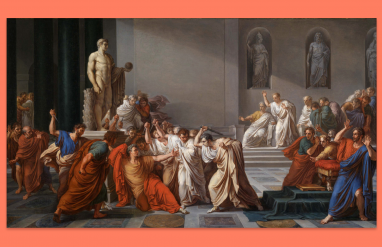It’s common knowledge that there are 50 states in the United States of America—and you might even be able to name them all—but did you know that four of them are technically considered commonwealths?
You might even live in one of these four and not even know it. Read on to find out if you do, and if so, what that means for how your state—sorry, your commonwealth—is governed. We’ll also try to clear up the state of confusion by sharing our wealth of knowledge about what commonwealth means in other contexts.
⚡ Quick summary
Pennsylvania, Kentucky, Virginia, and Massachusetts are commonly referred to as states, but they are actually legally designated as commonwealths. But the difference is only in the name—being a commonwealth doesn’t entail any legal or governmental differences from the other 46 states.
What does commonwealth mean?
Commonwealth has several different meanings (and it is often capitalized). It can refer to a federation of states (Australia is designated as a Commonwealth in this way), a self-governing US territory (Puerto Rico and the Northern Mariana Islands are designated as Commonwealths in this way), or an association of nations (such as what’s known as the British Commonwealth or the Commonwealth of Nations). It can also be used in more general ways, such as to refer to the body of people of a nation or any group of people united by some common interest. Commonwealth combines the word common and wealth (as in “the condition of being happy and prosperous”).
But in the context of the US and its 50 states, the word commonwealth is simply used as another word for state in the official names of four states in particular.
How did we end up with red states and blue states? Learn the history here.
Which states are commonwealths?
Four US states are technically designated as commonwealths: Pennsylvania (admitted to the union December 12, 1787), Massachusetts (February 6, 1788), Virginia (June 25, 1788), and Kentucky (June 1, 1792). The first three were among the original 13 colonies (Kentucky was part of Virginia until it became the 15th state). All four use the word commonwealth in their official name: the Commonwealth of Pennsylvania, the Commonwealth of Massachusetts, the Commonwealth of Virginia, and the Commonwealth of Kentucky.
You might have noticed that we’ve called the four of them states, and, frankly, so does just about everyone else—including their residents. After all, we usually say that the US has 50 states (not 46 states and four commonwealths).
So what does this mean in practical terms? What sets commonwealths apart from other states?
What is the difference between a state and a commonwealth?
Other than the name, there really is no legal or governmental difference between states known as states and states known as commonwealths. The word commonwealth was simply the word chosen as the official designation of each of them as a political entity—and the one used in official founding documents like the state constitution (it’s typically understood to imply that the commonwealth was founded through the common will of the people and for the common good). In fact, the word state is also often used in such documents without any distinction.
In addition, the states of Vermont and Delaware use both commonwealth and state in official documents.
How to use commonwealth vs. state
When it comes to Pennsylvania, Kentucky, Virginia, and Massachusetts, the word commonwealth is really only used in the context of their official names in official documents—or as a bit of good trivia. In general, all four are most commonly called states.
In other contexts, the word commonwealth may have more importance or entail a legal distinction. For example, because Puerto Rico is a Commonwealth territory of the US, its citizens are US citizens, but they do not have all the legal rights of the citizens of US states.
Examples of commonwealth and state used in a sentence
- Equality of rights under the law shall not be denied or abridged in the Commonwealth of Pennsylvania because of the race or ethnicity of the individual.
- The Commonwealth of Kentucky was admitted into the Union as the 15th state in 1792.
Have a strong grasp of the difference between state and commonwealth? Test yourself with our quiz!














